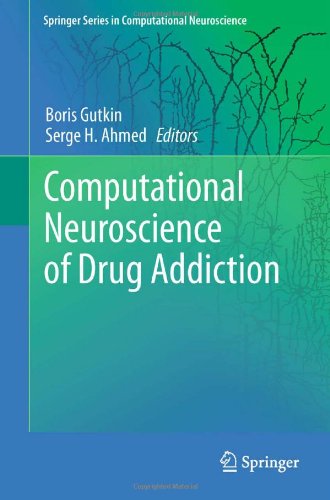

Most ebook files are in PDF format, so you can easily read them using various software such as Foxit Reader or directly on the Google Chrome browser.
Some ebook files are released by publishers in other formats such as .awz, .mobi, .epub, .fb2, etc. You may need to install specific software to read these formats on mobile/PC, such as Calibre.
Please read the tutorial at this link: https://ebookbell.com/faq
We offer FREE conversion to the popular formats you request; however, this may take some time. Therefore, right after payment, please email us, and we will try to provide the service as quickly as possible.
For some exceptional file formats or broken links (if any), please refrain from opening any disputes. Instead, email us first, and we will try to assist within a maximum of 6 hours.
EbookBell Team

4.7
96 reviewsDrug addiction remains one of the most important public health problems in western societies and is a rising concern for developing nations. Over the past 3 decades, experimental research on the neurobiology and psychology of drug addiction has generated a torrent of exciting data, from the molecular up to the behavioral levels. As a result, a new and pressing challenge for addiction research is to formulate a synthetic theoretical framework that goes well beyond mere scientific eclectism to deepen our understanding of drug addiction and to foster our capacity to prevent and to cure drug addiction. Intrigued by the apparent irrational behavior of drug addicts, researchers from a wide range of scientific disciplines have formulated a plethora of theoretical schemes over the years to understand addiction. However, most of these theories and models are qualitative in nature and are formulated using terms that are often ill-defined. As a result, the empirical validity of these models has been difficult to test rigorously, which has served to generate more controversy than clarity. In this context, as in other scientific fields, mathematical and computational modeling should contribute to the development of more testable and rigorous models of addiction.